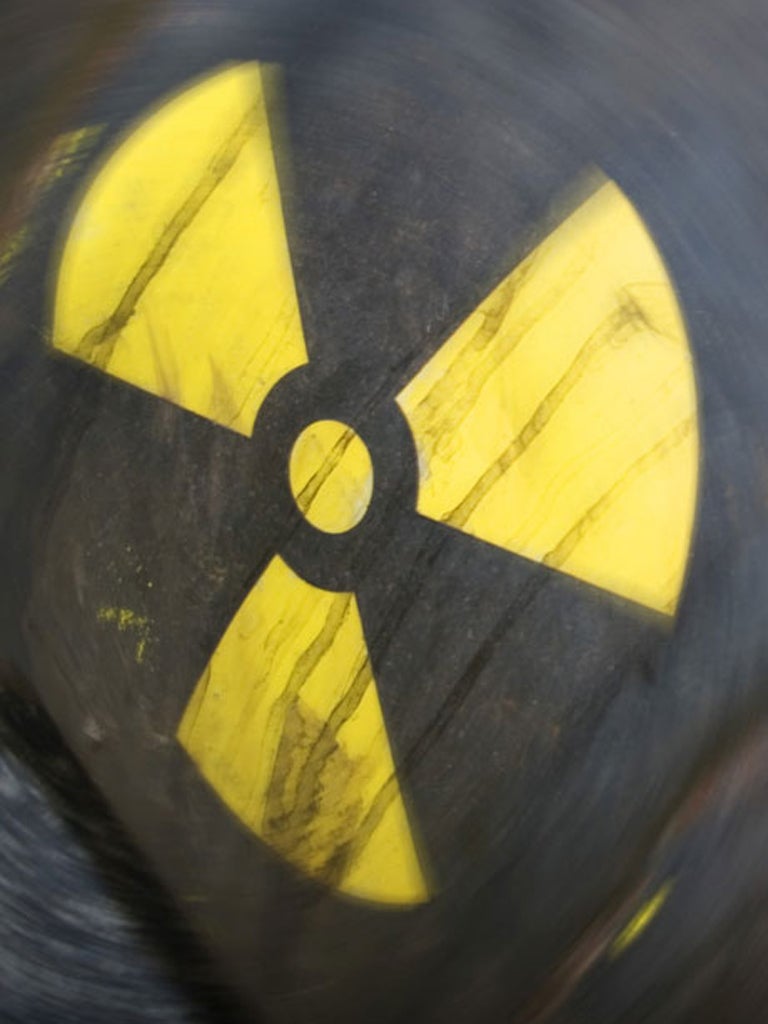Dirty bomb terror threat breakthrough: British scientists build machine to detect smuggling of nuclear materials
Technology expected to be rolled out across Britain's ports and airport as part of the UK's secret Cyclamen nuclear monitoring system

British scientists have created a machine that can detect terrorist attempts to smuggle nuclear material through ports and airports - even if it has been shielded from giving off radiation.
The Independent understands that prototypes of the machine - developed using a technique first established by experiments using the Large Hadron Collider - have already been tested by researchers at Britain's Atomic Weapons Establishment.
It is now expected to be rolled out across Britain's ports and airport as part of the UK's secret Cyclamen nuclear monitoring system.
The technology is unique because, unlike existing nuclear detectors, the new Muon-based machines can thwart attempts to disguise or hide radioactive material.
It works by passing tiny Muins - a type of subatomic particle - through containers and bags and monitoring how they bend as they pass through solid objects. As all nuclear materials have a unique density the machine can identify them even if they have been prevented from emitting radiation.
Results of early trials are to be discussed at a meeting of nuclear scientists and security experts from around the world in London today.
“The point of this machine is that you would need so much lead to stop detection that no tyres would be able to support a car or a truck carrying it,” said one British official.
“It is a significant step forward in our ability to be able to prevent nuclear proliferation or a dirty bomb attack.”
Statistics from the International Atomic Energy Authority reveal that last year there were 147 incidents of nuclear material being discovered outside state control.
Among the incidents were examples of loss of material from nuclear sites as well as targeted theft.
The Foreign Office Minister Alistair Burt revealed at the meeting that nuclear detection facilities had been in place at the Olympic Park as part of security preparations.
It is also understood that some baggage scanning machines now in place at Heathrow and Gatwick also have basic ability to “sniff out” radioactivity.
Such machines might, for example, have been able to detect the polonium responsible for the death of the Russian dissident Alexander Litvinenko.
However they do not have the capability to detect nuclear substances shielded by lead. The new machines would not have that problem.
Speaking at the meeting of the Global Initiative to Combat Nuclear Terrorism, Mr Burt said it was clear that Britain faced a threat from a “thriving” global smuggling network.
“Nuclear terrorism is a real and global threat,” he said.
“A successful attack, no matter where in the world it came, would be catastrophic. Such an attack was unthinkable just a generation ago. But it is now a possibility we need to confront with the utmost vigilance.
He added: “The number of incidents of nuclear material detection and loss has been growing.
“It emphasises the importance of work like this to keep one step ahead and continue to keep acknowledging the importance of the threat.”
Speaking about the Olympics Mr Burt said that it had been an important test of Britain's capability in the area.
“In preparing for all sorts of threat against the Olympics - a nuclear attack was considered and work was done to make sure we had in place sufficient detectors to counter that,” he said.
“We are confident from the readings and results that our equipment was up to scratch and did its job. Nothing was detected that was in anyway untoward.”
GICNT, which first met in South Korea last year, is a grouping of more than 85 nations committed to strengthening the global capacity to prevent, detect and respond to nuclear terrorism.
The symposium in London today brought together scientists and experts around the world to discuss development in Muon technology and how it could be effectively rolled out across the world.
The Muon machines highlight how theoretical physics work - such as that done using the Large Hadron Collider - can have practical benefits in the 'real world'. It also helps explain why the project received such extensive financial support from European Governments.
Subscribe to Independent Premium to bookmark this article
Want to bookmark your favourite articles and stories to read or reference later? Start your Independent Premium subscription today.
